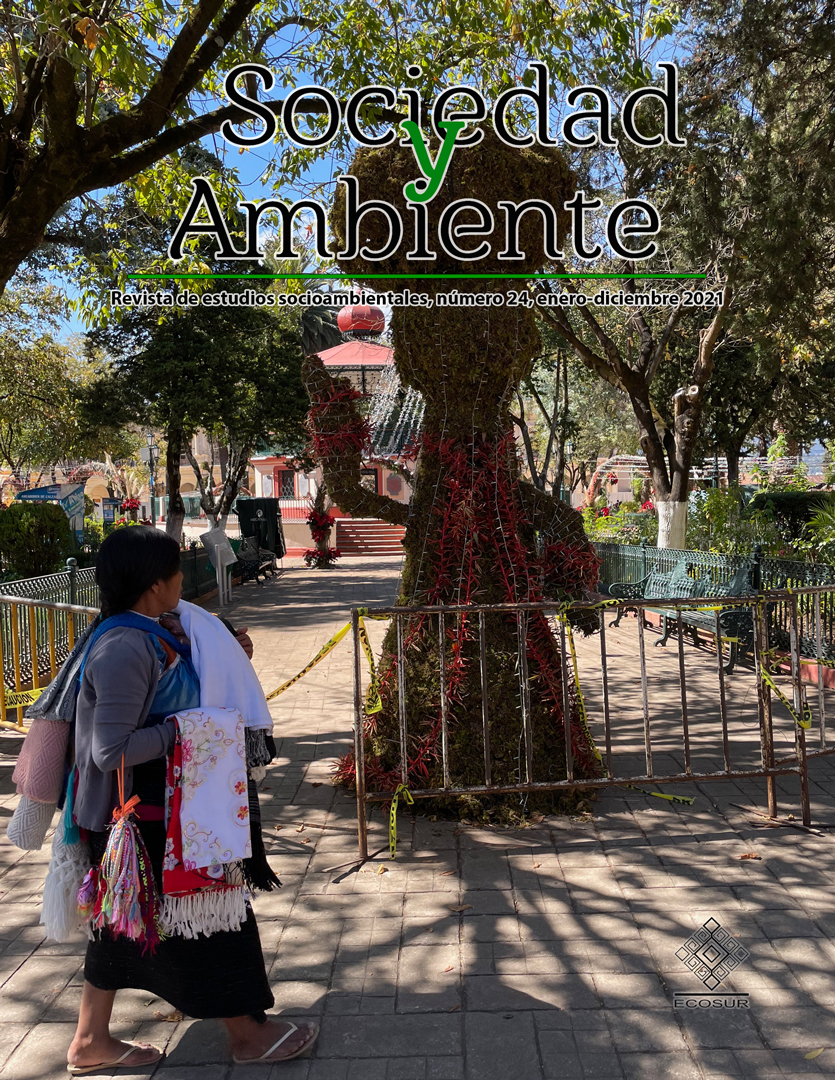Abstract
We analyze the effect that the prevailing socio-environmental regime in a Protected Natural Area has on the governance and the economic reproduction of the rural domestic groups of two ejidos in La Sepultura Biosphere Reserve (REBISE, by its initials in Spanish), Chiapas. We developed transdisciplinary research through the Peasant Territorial Systems (SITCA, by its initials in Spanish) conceptual scheme, including family workshops on livelihoods, role plays, and participatory interviews with key stakeholders. The results indicate that the environmental governance of REBISE has had three moments of transition and that the socio-environmental regime has not fostered territorial development nor the articulation of local actors to achieve sustainable development. The participation of rural domestic groups could play a fundamental role in designing more efficient governance processes since they develop a multi-active life strategy, take advantage of ecological niches to produce traditional goods, incorporate market-oriented socio-environmental innovations and government transfers and deploy their workforce. Nevertheless, integrating all their income, they cannot reproduce economically, lack the necessary capital, and have lost the capacity for action, individually and collectively. To transform this situation, we propose articulating SITCA through a polycentric and adaptive governance model focused on rural domestic groups.

Sociedad y Ambiente by ECOSUR is licensed under a Creative Commons Reconocimiento-NoComercial-SinObraDerivada 2.5 México License


